Results 1 to 10 of 11
-
10-12-2019, 01:04 PM #1
 Red Horn
Red Horn
I have a pair of vintage Sheffield blades one pictured below.
At first i thought these seem to be red horn but was not sure so i put them away for the time being.
Recently I've been researching on how to dye black horn black. Reading an old post from Neil Miller RIP he talks about Silver Nitrate which is a method i am soon to try. He also speaks of Red Horn.
That triggered my memory of my 2 red scaled razors . I got them out and decided to restore one of them a James Barlow and sons smiling wedge.
I am sure these are horn they defiantly have the same make up as old horn....but im waiting for some one to say, "are u stupid"? haha
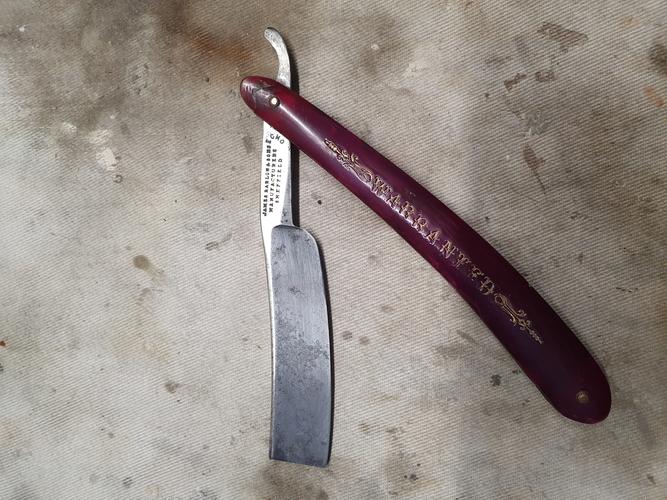
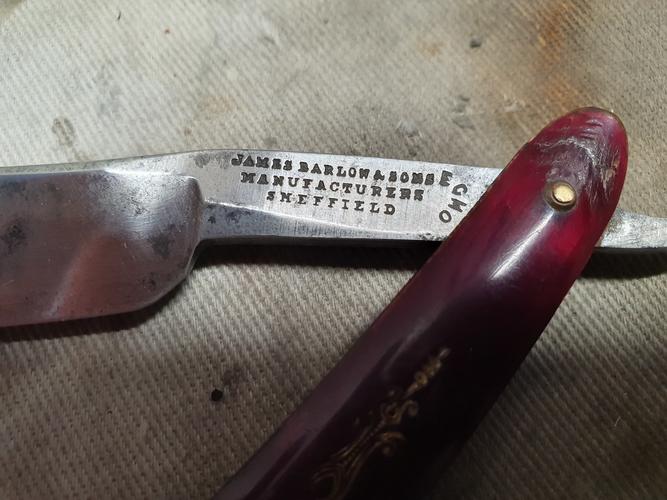
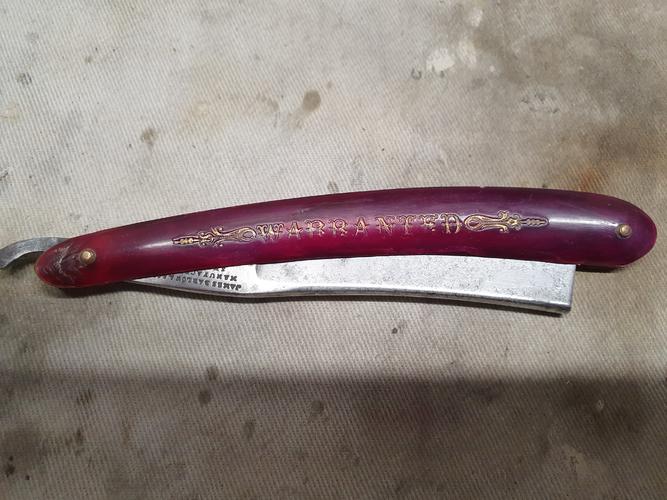
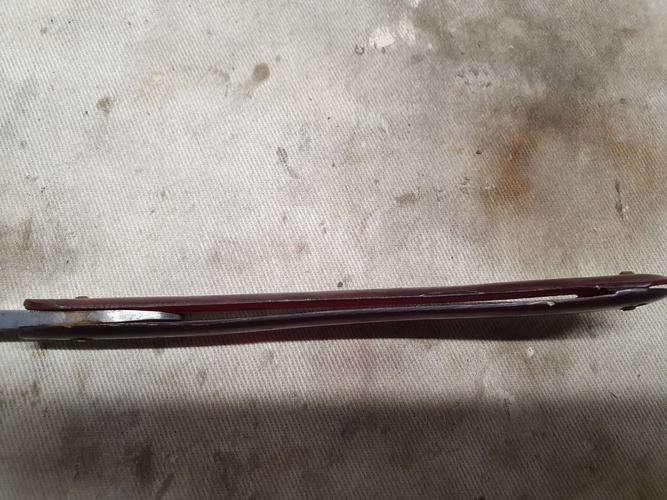
-
10-12-2019, 01:52 PM #2

Okay Job15 here goes - "Are you stupid?"
Really though, I hope things work out the way you want them to. Good Luck!Semper Fi !
John
-
10-12-2019, 01:56 PM #3Senior Member



- Join Date
- Mar 2012
- Location
- Thunder Bay, Ontario, Canada
- Posts
- 17,331
Thanked: 3228
I'd like to know how they dyed them red in the first place. I think they look real good.
Side note to how to dye black horn black. I have used black leather dye for that.
BobLife is a terminal illness in the end
-
10-12-2019, 02:51 PM #4

-
10-12-2019, 03:20 PM #5

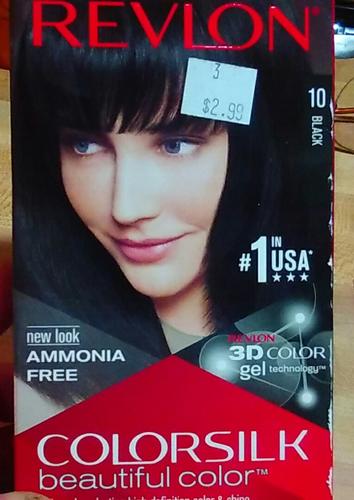
It works for me, just let them soak for a few hours, rinse, steel wool..... Presto.
You can leave it a satin look, or polish to a shine.
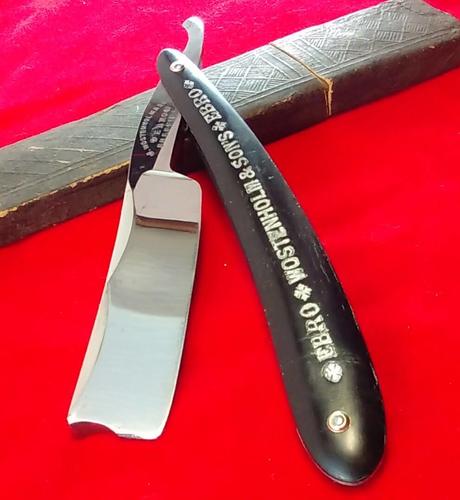
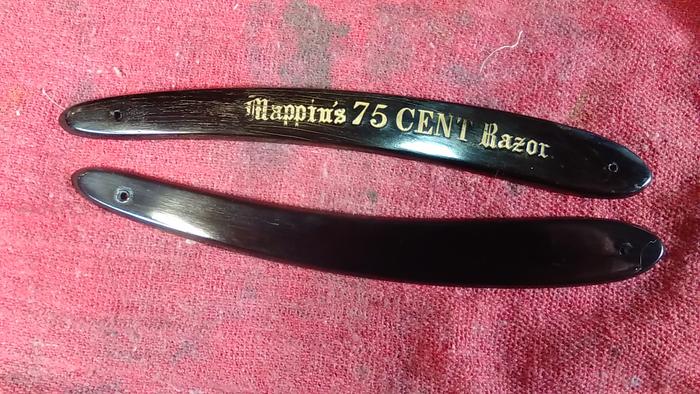
As for the red scales, they may have used ink and alcohol.
Along with honey horn.
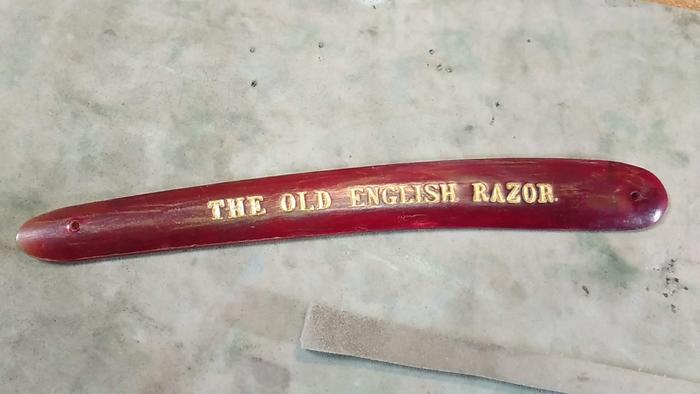
Just waiting for the right blade to come alongMike
-
The Following User Says Thank You to outback For This Useful Post:
JOB15 (10-12-2019)
-
10-12-2019, 04:24 PM #6Senior Member



- Join Date
- Mar 2012
- Location
- Thunder Bay, Ontario, Canada
- Posts
- 17,331
Thanked: 3228
-
The Following User Says Thank You to BobH For This Useful Post:
JOB15 (10-12-2019)
-
10-12-2019, 06:44 PM #7

Revlon hey Mike.. Because she's worth it

I have hair dye but never used it to date.
I do enjoy kitchen chemistry so I will try the silver nitrate.
Red horn is ok but it reminds me of plastic..
-
10-12-2019, 07:35 PM #8

Taken from Archives *
Old horn scales have been extensively dyed since the late 1700s at least. Horn was used to make a faux tortoiseshell - very many vintage razors have scales like this. I have examples of razors from around the 1850s that have had the horn bleached to almost transparent (aka 'blonde'), some which have had this treatment and then been dyed a gaudy red, some pink, some yellow. I have seen but not owned green examples. So yes - it can be done - if they could do it then, it can be done now.
Trouble is some of the old processes used fairly toxic chemicals. Horn mock tortoiseshell had a number of recipes, some of which included quicklime, litharge (lead) and lye, others used red lead and lye. To get black, the horn was first dyed green - using the liquid obtained by dissolving brass in nitric acid, then treating it with a decoction of logwood (a plant of the legume family). Red and green were obtained by first boiling the horn in alum water, then treating it variously with quicklime, ammonia, white wine vinegar, rainwater, brazil-wood, etc. Black was obtained by steeping the horn in silver nitrate (aka 'lunar caustic'). Undiluted it is indeed very caustic (it can remove warts!) but it is to be diluted so that it does not corrode the horn. After a thorough soaking it is taken into sunlight - the UV turns it deep black/brown. Also, anything the lunar caustic has touched will stain - as I know to my cost - fingers, hands, fingernails, furniture, towels, etc. And it takes months to come off your skin.
Other 'black' recipes called for the use of mercury salts and potassium nitrate - even more hazardous than lunar caustic. Some used red lead staining followed by washing in water and vinegar. This (Wagners Method) was a cheaper process, but after time white deposits (lead oxide - white lead) form on the horn. Thy can be polished away, but will always return.
All the processes that call for heat, or using logwood and gall decoctions that are heated make horn very brittle. I have seen red and yellow horn shatter like glass.
Aniline dyes were sometimes used - this type of dyeing does not penetrate very far into the horn, and still calls for the use of hydrochloric and sulphuric acid.
Other processes are simpler and call for the horn to be whitened (or made 'blonde' proper bleaching is a no-no - it is very injurious to the structure of the horn) followed by dyes such as anilines, tinctures, etc, like methyl violet. These are probably the least hazardous among the old recipes.
I suspect that the modern ways of dyeing horn use less hazardous materials.
Regards,
Neil
-
The Following 4 Users Say Thank You to JOB15 For This Useful Post:
dinnermint (10-12-2019), fjranilla (04-22-2020), outback (11-26-2019), rolodave (11-26-2019)
-
11-26-2019, 06:57 PM #9

Not too shabby.
Straightened the scales and so forth
I might re do the gold lettering....
Honed up to Shapton 30k
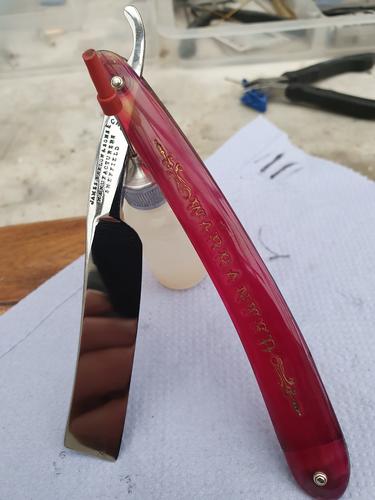
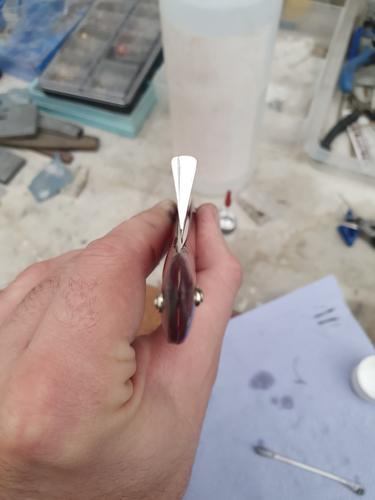
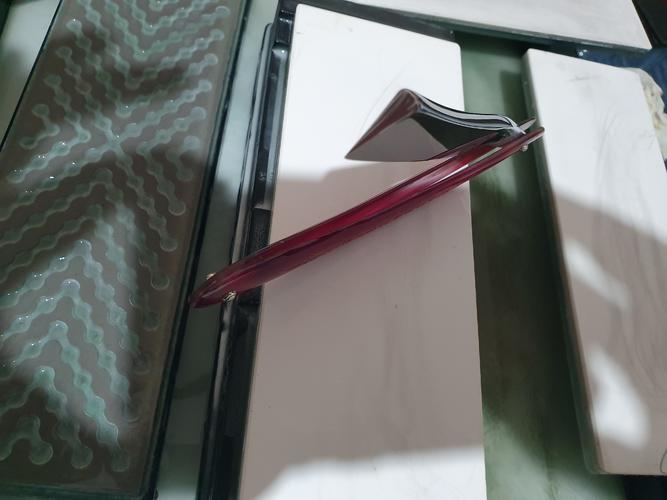
-
11-26-2019, 08:53 PM #10Senior Member




- Join Date
- Feb 2013
- Location
- Haida Gwaii, British Columbia, Canada
- Posts
- 14,450
Thanked: 4829
Those are looking good. A little gold in the lettering sounds like a great plan. On with the second one as well I suspect. Did you use any of the old chemical treatments mentioned or just hair dye?
It's not what you know, it's who you take fishing!


 60Likes
60Likes LinkBack URL
LinkBack URL About LinkBacks
About LinkBacks






 Reply With Quote
Reply With Quote

